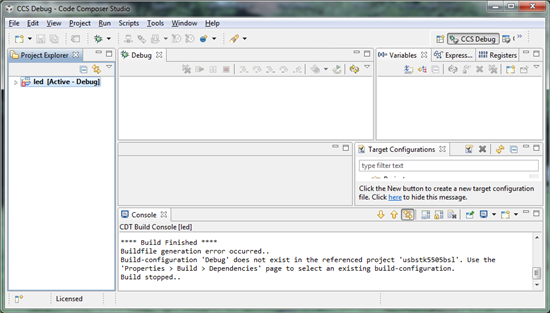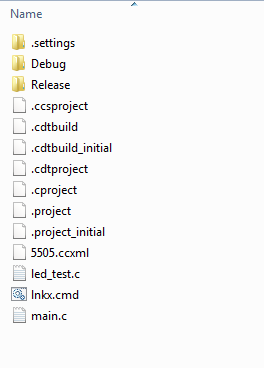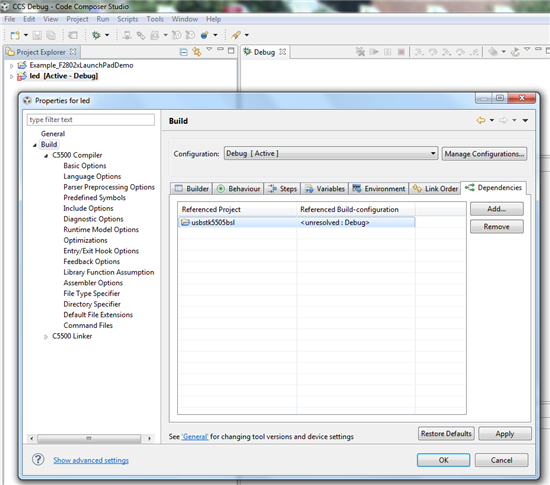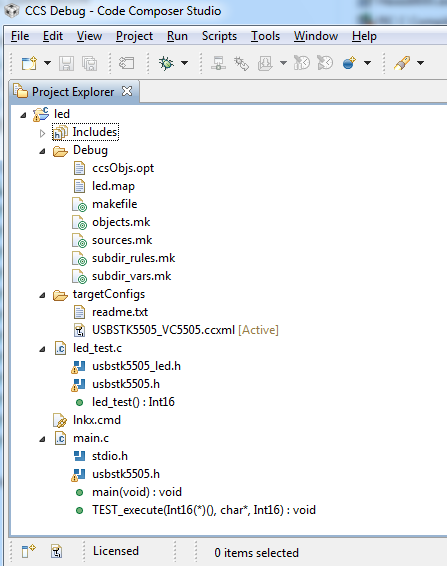Other Parts Discussed in Thread: TMS320VC5505
Hello,
after some weird installation problems of CCS v4 on my notebook Win 7 64, I started to install the CCS v5 -- without any installtion problems.
Now I wanted to import the v4 LED sample as a projekt and wanted to make the build command, then the following error came up
Build-configuration 'Debug' does not exist ...
I have no idea how to solve it. Maybe it is a migration problem and the samples of v4 won't work in CCS v5.
Any help is appreciated.
Thanks
Dieter







